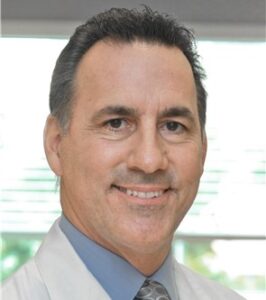Hand and Upper Limb Orthopedic Surgeon and founder of OrthoNOW Dr. Alejandro Badia Calls for ‘Right Clinician at Right Time;’ Offers Work Safety Tips
MIAMI (PRWEB) June 15, 2021
More than 90 percent of all work-related trauma is orthopedic in nature, yet oftentimes the injured employee is sent to an occupational health center – or even a hospital emergency department — where practitioners may have limited knowledge for treating musculoskeletal problems, according to Miami-based orthopedic surgeon and founder of OrthoNOW Alejandro Badia, MD. He warns that failure to promptly direct the injured patient to a board-certified orthopedic specialist can substantially delay an employee’s return to work and prove ultimately costlier for both patient and the patient’s employer.
Authors of a study published in the Journal of BioMed Central Limited agree, stating that the economic benefits of appropriate care for musculoskeletal trauma and disorders can far exceed the cost of the actual treatment. “A large portion of the societal economic benefits from receiving appropriate medical care relates to keeping people productively employed in the labor force,” the researchers write.
“Seeing the right clinician at the right time is what will get valuable workers back to their jobs faster and more cost-effectively, reduce overall workers compensation liability, avoid early retirement, and limit chances that the employee’s injury will develop into a more complex, longer-term problem because of treatment delays,” says Dr. Badia.
As author of the book Healthcare from the Trenches and founder of Florida-based OrthoNOW®, a network of walk-in orthopedic care centers that serves as an OCC health/urgent care center with doctors with the right expertise, Dr. Badia has been outspoken about health system and third-party barriers resulting in “skyrocketing health costs, lack of patient access and inefficient delivery of care.”
The standard treatment protocol for most work injuries is outdated, he indicates. “It requires the patient to be seen in an occupational health center or general urgent care center where clinicians lack orthopedic expertise. Considering most work-related traumas are orthopedic, does it benefit the employer, the worker, or the health care economy to have injury assessment and care provided by an occupational health nurse or by a primary or emergency care physician with no background in musculoskeletal disorders? But companies and insurers continue adhering to such a process because that is the way it has always been done.” Dr. Badia adds that OCC health specialists are in short supply, but regardless, OCC specialists don’t have the orthopedic ad musculoskeletal training to diagnose or treat actual injuries, so they must refer patients out. This step is what delays return to work and dramatically increases cost and liability associated with a work injury.
But Dr. Badia notes, “The ongoing development of orthopedic-specific urgent care centers throughout the country now offers patients ready access to specialty treatment of musculoskeletal injuries and disorders, although adoption and acceptance of such innovation by the health system in this country remains lethargic at best.”
Meanwhile, other experts concur with Dr. Badia’s call for change in employers’ approach to workplace injuries.
A report in an issue of American Family Physician states that occupational medicine is “one of the smallest medical specialties” and that the shortage of occupational medicine specialists places heavy reliance on primary care physicians to shoulder much of the responsibility for evaluating and treating injured workers.
Cost of work injuries during 2019 totaled $171 billion, according to the National Safety Council. That amount includes wage and productivity losses, health care expenses, administrative costs, and employers’ uninsured costs, such as the value of time lost by injured workers.
Numbers from the Centers for Disease Control and Prevention indicate that in 2018, approximately 2.5 million employees went to a hospital emergency department “for treatment of injuries, many of which could have been more properly addressed by an orthopedic specialist at far less cost,” Dr. Badia says. Indeed, emergency room charges are up to 10 times higher than what patients would incur at an urgent care center, including an orthopedic specialty center. Also, studies show that orthopedic conditions are sometimes “misdiagnosed and ineffectively managed” by emergency care physicians.
Work-related musculoskeletal trauma commonly affects the hand, shoulder, and elbow, as well as back and knee, says Dr. Badia, who specializes in the treatment of upper-limb disorders. Fractures; sprains and strains; back and neck pain; lacerations and punctures, especially to hands; and shoulder rotator cuff tears are among more frequently reported work injuries.
Although employer and worker’s compensation protocols for addressing work-related accidents may be slow to change, Dr. Badia advises employees to take personal responsibility by:
- Participating in company safety training programs and checking instructional safety manuals before proceeding with a task.
- Reporting or cleaning up spills on floors to prevent others from slipping and falling.
- Learning – and applying — proper lifting techniques.
- Keeping work areas clean.
- Practicing correct posture when sitting for long periods at a desk.
- Taking frequent “micro” work breaks whenever possible.
- Make sure that you are being referred to the right specialist for your work related injury to avoid further suffering and costs.
“Most importantly, remain physically active. Exercise regularly to strengthen your body core and your muscles and joints,” Dr. Badia says.
Alejandro Badia, MD, FACS, internationally renowned hand and upper-limb surgeon and founder of Badia Hand to Shoulder Center and OrthoNOW®, a walk-in orthopedic care clinic. He is a member of the American Society for Surgery of the Hand, American Association for Hand Surgery and the American Academy of Orthopedic Surgeons and an honorary member of many international professional hand societies. Dr. Badia specializes in treating all problems related to the hand and upper extremities, including trauma, sports injury, joint reconstruction, nerve injuries and arthroscopic surgeries. Go to OrthoNOWcare.com and drbadia.com.

